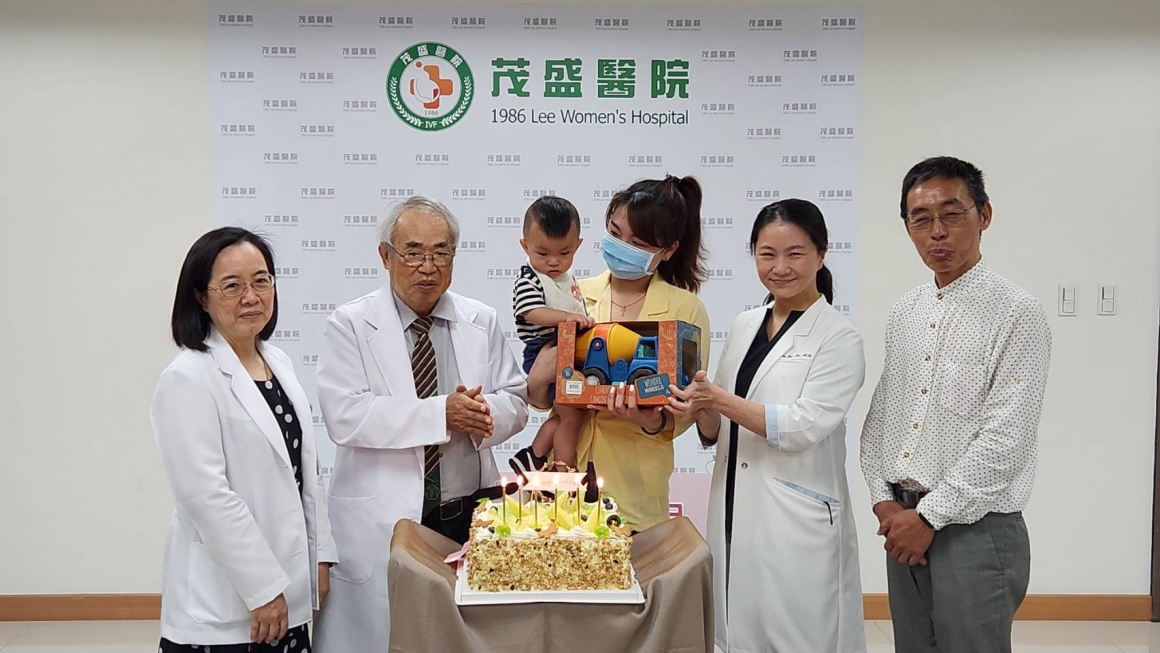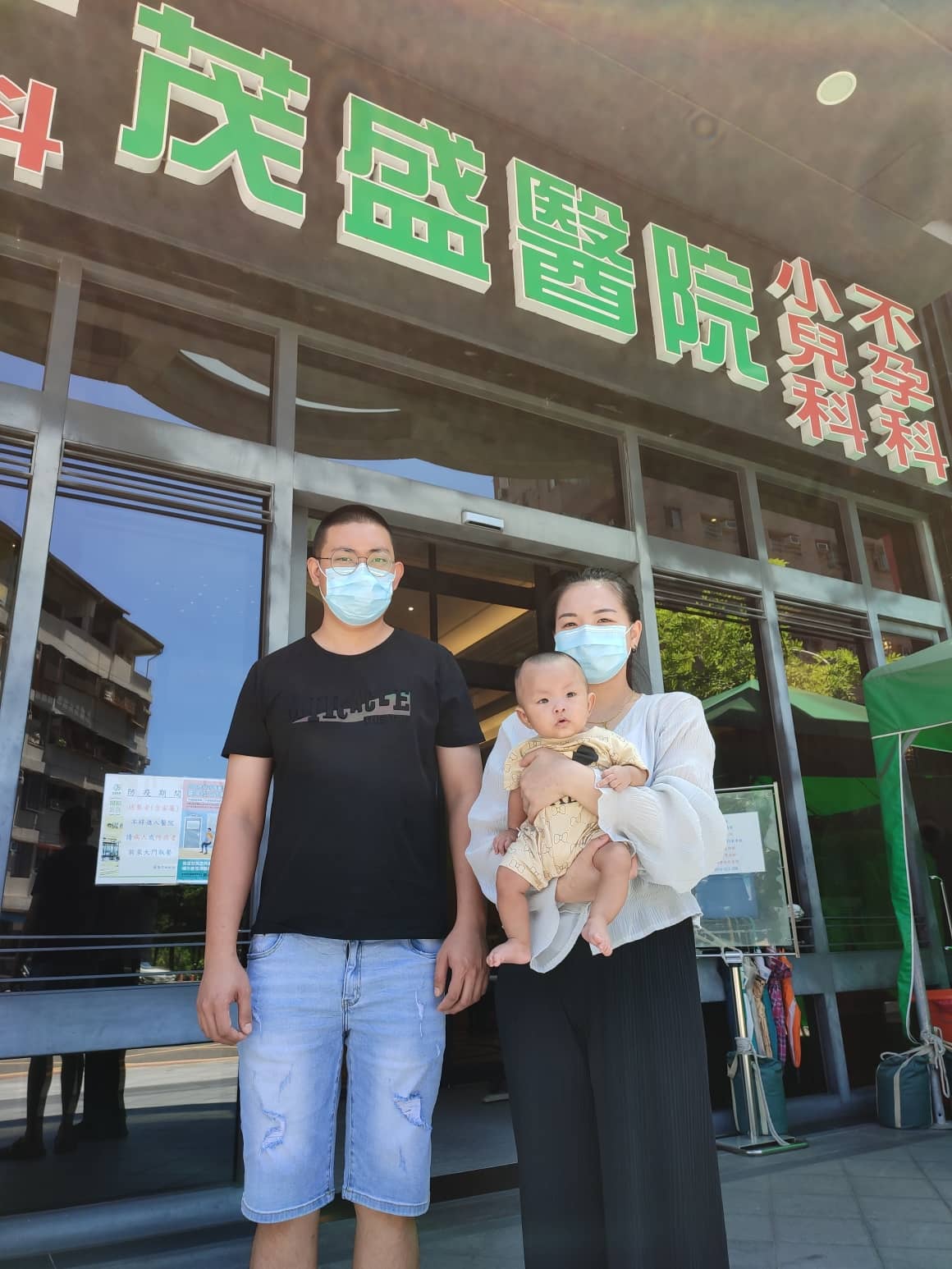Latest News
2023.04.20
World Hemophilia Day: using assisted reproductive technology to help hemophilia patients have healthy offspring
April 17th is "World Hemophilia Day", and Lee Women's Hospital took the lead in responding to public welfare by holding a ceremony with the Taiwan Hemophilia Society to sign a "Contracted Hospital" agreement at 10 a.m. The hospital will provide discounts for association members on medical treatment, examinations, and other related services for assisted reproductive technologies. It is hoped that on this meaningful day, the government and the general public can pay attention to the reproductive rights of hemophilia patients. Dean Dr. Maw-Sheng Lee supports the Ministry of Health and Welfare's ongoing discussion on including chromosome and gene diagnostic screening in the "Assisted Reproduction Subsidy Program". Chairman Lin Xu Ke of the Taiwan Hemophilia Society hopes the government can implement it as soon as possible to benefit patients. Mrs. Zhang, who attended the event, has hemophilia B. After undergoing "Preimplantation Genetic Testing for Aneuploidy (PGT-A)" and "Preimplantation Genetic Diagnosis for Monogenic Disorders (PGD-M)" performed by her attending physician Dr. Pin-Yao Lin last year, she successfully gave birth through in-vitro fertilization (IVF). Today, her son celebrates his first birthday, and the hospital and the hemophilia association jointly celebrate the baby's health and growth. Currently, Mrs. Zhang is trying for a second child, hoping to companion her elder child as soon as possible.
![Lee Women's Hospital is considering offering a]()
Lee Women's Hospital is considering offering a "contract hospital" program to social welfare organizations. Taiwan Hemophilia Society will be the first group to benefit from the program. The hospital will discount registration, hospitalization, reproductive medical care, and testing for association members. In addition, it will provide services such as health education lectures and medical consultations. The hospital hopes to lead public welfare on World Hemophilia Day. It calls on the government and the public to pay attention to hemophilia patients' rights and women with genetic disorders. During the signing ceremony for the contract hospital program, Chairman Lin Xu Ke of the Taiwan Hemophilia Society expressed gratitude to the hospital for its assistance and medical consultations to members over the past year. The association will continue to work with Lee Women's Hospital to promote genetic reproductive medicine.
Today, Mrs. Zhang, a carrier of type B hemophilia, attended the signing ceremony with her child. She said that she and her husband had been saving up for IVF for seven years before coming to Lee Women's Hospital. Their dream of having a child was fulfilled quickly. As her son turned one year old, Lee Women's Hospital and the Taiwan Hemophilia Society held a joyous celebration for him. They wish this lucky child a healthy and prosperous future. Mrs. Zhang expressed her gratitude to Dr. Maw-Sheng Lee, Dr. Pin-Yao Lin, Dr. Zheng,En-Hui and the genetic diagnosis laboratory team for their assistance. She especially appreciated the hospital's help in applying for the "IVF subsidy program" and receiving a subsidy of NT 30,000 for implantation. She underwent another egg retrieval in February this year and hopes to implant the embryos in June.
Chairman Lin said that women who carry hemophilia face significant pressure and fear. They worry about birthing offspring with the disease. Therefore, he called on the government to provide more IVF subsidies for hemophilia patients and even include them in national health insurance. From a preventive medicine perspective, using advanced genetic testing to avoid hemophilia babies during pregnancy is the most beneficial public health policy and investment.
With PGT-A and PGD-M testing, healthy siblings will be added to the family. Infertility specialist Dr. Pin-Yao Lin pointed out that Mrs. Zhang, as a hemophilia carrier, is due to maternal inheritance. On the XX chromosome of females, one is abnormal and one is normal, making them carriers. When carrier women and normal men give birth to a son, there is a 50% chance of hemophilia inheritance in the offspring. Therefore, family members with carriers should undergo blood tests for genetic sequence analysis. This is to confirm whether it is a locus mutation or a gene inversion. Then, during the IVF treatment, screening through PGT-A and PGD-M can prevent offspring from inheriting single-gene recessive diseases.
Last year, Mrs. Zhang underwent IVF treatment and obtained 13 eggs, of which 4 embryos were cultured. After testing, it was found that only 1 embryo was healthy, and the others carried the hemophilia gene. After implanting the only normal embryo, she gave birth to a healthy baby in April last year. This fulfilled her wish to have a child after less than a year of treatment. In February of this year, Mrs. Zhang underwent her second treatment and obtained 12 eggs, of which 5 embryos were cultured. After genetic screening, 3 embryos were normal, and the others carried hemophilia genes. The highest quality 3 embryos will be implanted, and it is believed that the second child will soon be born.
Nearly 5000 people with hemophilia and carriers face difficulties in fertility
Currently, there are over 1200 hemophilia patients in Taiwan, and the number of carriers is at least three times that, totaling about 5000 people! According to statistics from the National Health Insurance Administration, the annual medication cost for each patient is 4 million NT dollars. This is a huge burden on the health insurance system. Moreover, if patients or carrier want to have children but are worried about passing on the condition to the next generation, the cost of assisted reproductive technologies is also a financial challenge. Therefore, Dr. Maw-Sheng Lee pointed out that Taiwan's negative population growth has reached 3 years, and the declining birth rate is becoming more serious year by year. Therefore, the government and society should help couples who want to have children.Lee Women's Hospital is considering offering a "contract hospital" program to social welfare organizations. Taiwan Hemophilia Society will be the first group to benefit from the program. The hospital will discount registration, hospitalization, reproductive medical care, and testing for association members. In addition, it will provide services such as health education lectures and medical consultations. The hospital hopes to lead public welfare on World Hemophilia Day. It calls on the government and the public to pay attention to hemophilia patients' rights and women with genetic disorders. During the signing ceremony for the contract hospital program, Chairman Lin Xu Ke of the Taiwan Hemophilia Society expressed gratitude to the hospital for its assistance and medical consultations to members over the past year. The association will continue to work with Lee Women's Hospital to promote genetic reproductive medicine.
An individual with hemophilia carrier successfully gave birth to a child through IVF.

Today, Mrs. Zhang, a carrier of type B hemophilia, attended the signing ceremony with her child. She said that she and her husband had been saving up for IVF for seven years before coming to Lee Women's Hospital. Their dream of having a child was fulfilled quickly. As her son turned one year old, Lee Women's Hospital and the Taiwan Hemophilia Society held a joyous celebration for him. They wish this lucky child a healthy and prosperous future. Mrs. Zhang expressed her gratitude to Dr. Maw-Sheng Lee, Dr. Pin-Yao Lin, Dr. Zheng,En-Hui and the genetic diagnosis laboratory team for their assistance. She especially appreciated the hospital's help in applying for the "IVF subsidy program" and receiving a subsidy of NT 30,000 for implantation. She underwent another egg retrieval in February this year and hopes to implant the embryos in June.
Taiwan Hemophilia Society offers fertility subsidies to help members have children.
Mrs. Zhang also expressed her gratitude for the Taiwan Hemophilia Society's subsidy for genetic testing fees, which made Chairman Lin Xu-ke very happy. He said that since 2022, the association has launched the "Hemophilia Reproductive Health Care Subsidy Program," which provides a medical subsidy of NT$50,000 to members who have successfully undergone PGT-M testing and embryo implantation. Mrs. Zhang was the first member to receive the subsidy, and she can now apply for it again as she strives for her second child. Currently, there are about 10 members inquiring about this program.Chairman Lin said that women who carry hemophilia face significant pressure and fear. They worry about birthing offspring with the disease. Therefore, he called on the government to provide more IVF subsidies for hemophilia patients and even include them in national health insurance. From a preventive medicine perspective, using advanced genetic testing to avoid hemophilia babies during pregnancy is the most beneficial public health policy and investment.
Through two cycles of IVF, a carrier woman discovered that nearly half of the embryos carried the disease-causing gene.

With PGT-A and PGD-M testing, healthy siblings will be added to the family. Infertility specialist Dr. Pin-Yao Lin pointed out that Mrs. Zhang, as a hemophilia carrier, is due to maternal inheritance. On the XX chromosome of females, one is abnormal and one is normal, making them carriers. When carrier women and normal men give birth to a son, there is a 50% chance of hemophilia inheritance in the offspring. Therefore, family members with carriers should undergo blood tests for genetic sequence analysis. This is to confirm whether it is a locus mutation or a gene inversion. Then, during the IVF treatment, screening through PGT-A and PGD-M can prevent offspring from inheriting single-gene recessive diseases.
Last year, Mrs. Zhang underwent IVF treatment and obtained 13 eggs, of which 4 embryos were cultured. After testing, it was found that only 1 embryo was healthy, and the others carried the hemophilia gene. After implanting the only normal embryo, she gave birth to a healthy baby in April last year. This fulfilled her wish to have a child after less than a year of treatment. In February of this year, Mrs. Zhang underwent her second treatment and obtained 12 eggs, of which 5 embryos were cultured. After genetic screening, 3 embryos were normal, and the others carried hemophilia genes. The highest quality 3 embryos will be implanted, and it is believed that the second child will soon be born.




